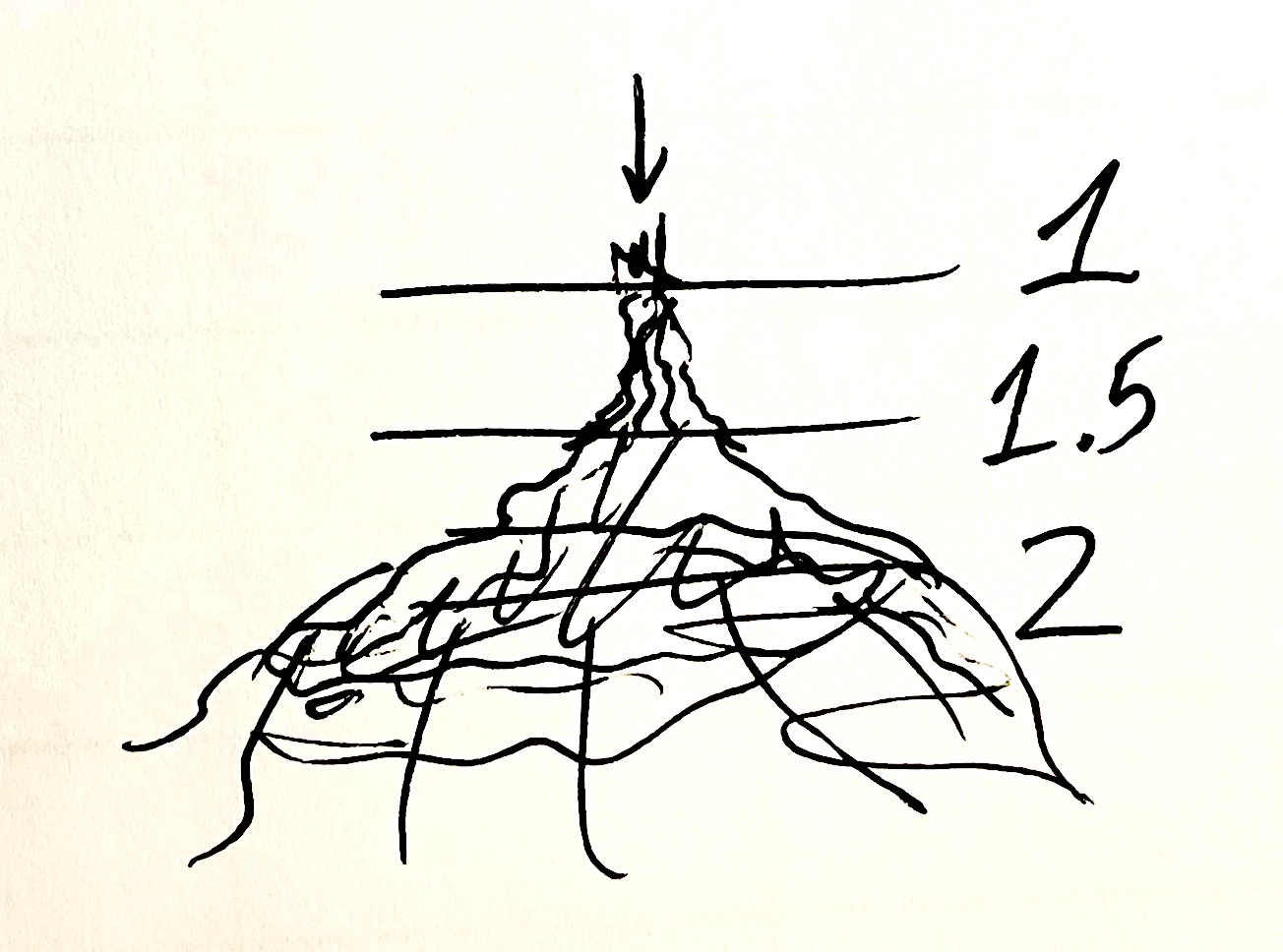We can divide our view of the world into three tiers: philosophy, strategy, and occurrence. I argue that they should be 1st-order, 1.5th-order, and 2nd-order, respectively. (Throughout this article, "higher" refers to lower numbers, much as 4th is 'higher-ranked' than 7th.)
Let's start from the bottom. Occurrence is what happens to us. It might be a miraculous tchoukball save, rejection from a research application, or getting 50 people to join Signal1. There are two main ways to view occurrences: as entities in themselves, from which the metaphysical stems; or as a byproduct of higher-order exertions. In the former, we receive a certain result, then consider how to build habits, strategies, etc. around them; in the latter, we first set our values, priorities, etc., and let the chips fall where they may. There is not much difference between the two views, as they result in the same hierarchy: they suppose higher-order structures above occurrences.
Practically, there is a difference between these views: we may fixate on the results and fail to adapt the strategies accordingly, i.e. look above on the 'order tier'. I recall putting more of my thoughts on test scores and raising them, as opposed to changing my study methods so that better scores naturally follow; repeatedly attempting 25-yard field goals with clumsy footing, instead of first practicing my posture and swing several times. In research, this may manifest itself as worrying too much about e.g. code and making progress in research, rather than trusting the process and exploring, knowing that results can only follow with this trust.
If we start from the top, our philosophies, values—the abstract—would be the trickle in the mountains that produces the ocean. That is where our conceptions about the universe etc. originate, whence all else stems. Thus, philosophy must be first-order.
Then, as an implementation of such philosophies, we strategize. Habit and scheduling are not abstract, but they also bear the characteristic of potential action that separates them from the doing i.e. manifestations themselves that characterize occurrences2. Strategy is an intermediate level between philosophy and occurrence.
So if philosophy is 1st-order, should we have strategy as 2nd-order, and occurrence as 3rd-order, or is it better to condense into 1.5th- and 2nd-order? I'd argue the latter. Strategy is a blend of philosophy and reality, not an entirely new component/order. Besides, it feels wrong to separate pursuits of oneself by more than 1 order. After all, we check whether our philosophies and strategies are good based on the results they produce, so that the two higher tiers are dependent on occurrence.
This article was written to explain how life can be strategically viewed. It is all too easy to see what happens in front of us and be scared or sad. But if we know to tweak our philosophies and strategies, we perch ourselves above the plane of occurrences, and the hopelessness goes away.
Footnotes
1 I did this in fall '22. I am proud to say that 99.5% of my messages are exchanged on Signal!
2 Yes, the title "Orders of Occurrence" is a pun off "occurrence".
